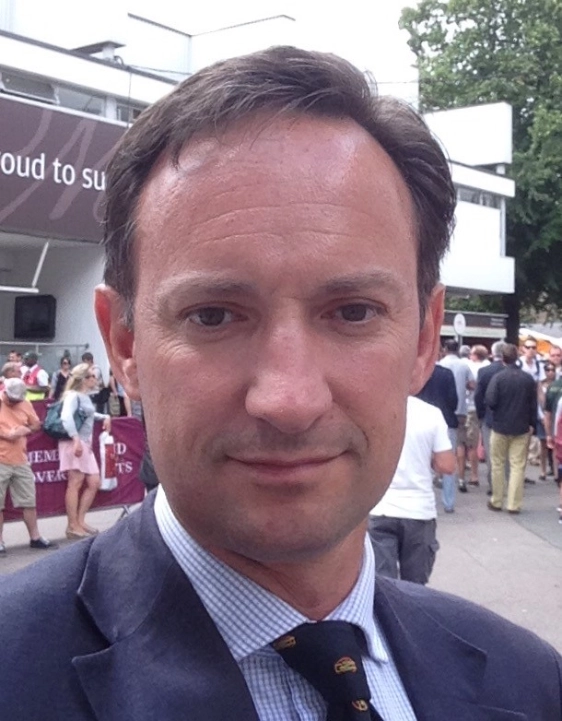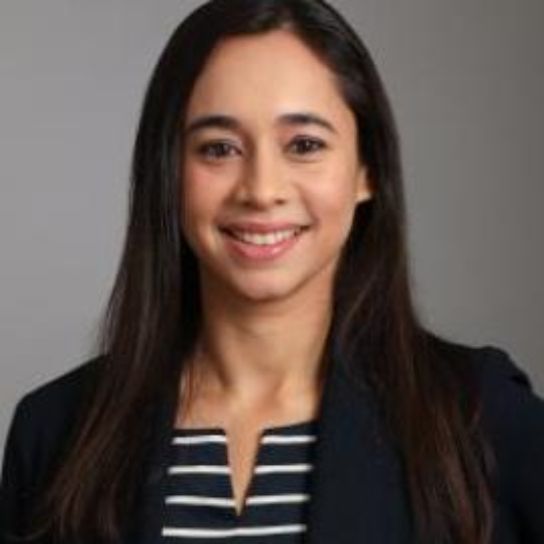Andrew trained and worked at Herbert Smith Freehills in London for 22 years, 13 years as a partner, specialising in employment law. Since leaving the firm in 2012, he has developed a portfolio career: as a CEDR-accredited mediator; an independent investigator into disciplinary and grievance issues; a consultant to a number of wildlife conservation charities assisting with their response to the revisions of UK ivory trade legislation; and as a senior policy advisor for the Independent Commission for Equity in Cricket.
For someone whose main interests in life are wildlife conservation and sport, Andrew Brown could hardly have found better roles in his post-Herbert Smith Freehills career. His wildlife passion started, as for so many people, watching David Attenborough documentaries but was then really triggered as a student during a wildlife safari in Kenya. Seeing elephants and lions in the wild for the first time was transformative. Another trip, to stay with his cousin in Uganda where she ran a sanctuary for orphan chimpanzees, also made a deep impression: “Bottle feeding two baby chimps called Pan and Dora - they were found in a box about to be exported to the Middle East after their mother had been shot - is something I’ll never forget” says Andrew.
Subsequently, he spent many holidays in Africa and, on his sabbatical from Herbert Smith Freehills, took a seven-week self-drive trip with his partner Leon in a Land Rover through Zambia, Botswana and Namibia. Andrew has also travelled further afield, including trekking to Everest Base Camp in 2014, leaving Base Camp the day before an avalanche tragically killed 13 Sherpas in the Khumbu Icefall just above the camp.
Cricket and golf are his main sporting interests. He played cricket at school, college, club and for a wandering team set up by Simon Bushell (former litigation partner at HSF). He also played for the firm and for a while ran the firm’s team. He used to play a lot of golf and, at his best, played off a handicap of 10. He is a keen spectator of both.
Andrew looked for some guidance on his post-HSF career through an organisation that specifically helps lawyers to plan the transition – Bridging Law and the Boardroom (also known as BCKR). The main recommendation of BCKR was that anyone making the transition should emphasise their skills and what they can offer businesses or organisations, rather than assuming that just because they had been a successful lawyer doors would instantly open.
All good advice when applying for non-executive director or other roles such as a charity trustee, Andrew says. “You need to start with all of the skills and experience you gained as a lawyer – delivering high quality work to tight deadlines, judgment, attention to detail, management of people, commercial nous. Being a corporate lawyer, tax lawyer, real estate lawyer or whatever doesn’t define you – it’s the skills you’ve gained that are important.”
Through BCKR Andrew met a trustee of the World Wide Fund for Nature who offered him a short internship working with the general counsel. “That is another useful pointer for anyone else in the same position as me,” Andrew continues. “You need to be humble enough to do an internship or work experience, and not think it’s beneath you simply because you have been a senior lawyer who was more used to telling others what to do.”

You need to start with all of the skills and experience you gained as a lawyer – delivering high quality work to tight deadlines, judgment, attention to detail, management of people, commercial nous.
Then, through friends, Andrew was introduced to the CEO of the David Shepherd Wildlife Foundation, a former barrister who had made the move into wildlife conservation. This was shortly before a global wildlife conservation conference was due to take place in Johannesburg in September 2016. Andrew was invited to join the Foundation’s delegation (provided he could pay his own way there). That conference provided an opportunity for Andrew to meet “anyone and everyone” in the field of wildlife conservation.
That, in turn, led to Andrew attending a conference organised by the Wildlife Justice Commission in The Hague. While queuing for coffee, he started chatting to Mary Rice, CEO of the Environmental Investigation Agency (EIA) in London. Over cappuccinos, it emerged that EIA was looking for some legal support to respond to a UK government consultation about tightening legislation on the ivory trade. Would Andrew be interested?
Initially working as a volunteer, Andrew became an employee after EIA secured some funding for his role. As he readily admits, Andrew knew nothing about the ivory trade, but he learned fast and, as he points out, he was quite used to getting to grips with new areas of law. Indeed, over the course of the next two years, Andrew became an expert in the laws associated with the ivory trade.
EIA coordinated the response of seven other charities to the proposed legislation. Andrew was responsible for drafting that response, and helping all eight organisations agree a common position - no easy task since they were all used to operating independently. The legislation itself was then the subject of a judicial review brought by a number of antique dealers, again calling upon Andrew’s skills as a lawyer. The charities were not parties to the judicial review, but they provided their input to the government’s response.
For Andrew, this was one of the most satisfying things he had ever done. “It was only a tiny role in the general scheme of things, but, as someone who loves wildlife, I was doing whatever I could to make a difference. It turns out that an employment lawyer can help elephants...”
You need to put yourself in a position to take advantage of lucky timing: all of those opportunities came about because I was willing to take a punt and speak to someone.
He also found himself in the right place at the right time when it came to being involved in another of his passions – cricket. He approached Sanjay Bhandari, another Herbert Smith Freehills alumnus, chair of the football anti-discrimination charity, Kick It Out, to say that he was interested in working in sport, ideally using his employment law background. Sanjay mentioned that one of the Kick It Out trustees, Cindy Butts, had recently been appointed chair of a commission to report on discrimination in cricket and thought it would be worth the two of them talking.
After a conversation with Cindy, in November 2021, Andrew began working as senior policy advisor for the Independent Commission for Equity in Cricket (to give the commission its full name). The role involved research, interviewing and gathering evidence, as well as writing part of the 300-page report that was finally produced in 2023.
As someone who loves the game of cricket, both as a player and spectator, the evidence of discrimination the commission uncovered was deeply troubling. The commission found that racism and sexism were entrenched in cricket and that class and socio-economic factors often determined who ultimately succeeded at the professional level (there was a clear divide between those who could afford to play cricket on decent pitches, with proper kit and good coaching (especially at school) and those who couldn’t).
The report was damning of English cricket structures. For example, around one-third of recreational cricketers are from South Asian backgrounds but only 5% of professional cricketers. Despite the thoroughness with which evidence was gathered – combining lived experience with huge amounts of data - the commission anticipated that the report would face strong criticism. “We knew there would be those who would dismiss it all as ‘woke nonsense’, so we were keen to try to head off those criticisms through clear reasoning and compelling evidence,” Andrew says.
Sure enough, there were some critics – not least Lord Botham, who said that he had never seen racism in cricket (something that might have come as a surprise to Michael Holding, the West Indian fast bowler who gave a moving Sky interview and wrote a book on the subject). But, for the most part, the report was well-received in the media and the England and Wales Cricket Board have publicly committed to implementing the vast majority of its recommendations.
“Constructing the report was fascinating,” Andrew says. “We were absolutely determined that we should produce a report of real substance. Even if people didn’t like the conclusions, they would have a tough job producing their own evidence to challenge it. It was also important that the report was well-written and presented, and adopted the right tone for what can be a polarising topic, which some media commentators specifically acknowledged.”
Andrew is hoping that this experience in the cricket world may lead to more roles along the same lines. That has already started as he has been appointed to the Football Association’s anti-discrimination panel.
His wildlife conservation interests also continue, as a trustee of the David Shepherd Wildlife Foundation.
So, things have definitely turned out well for Andrew. However, he acknowledges that luck has played its part in timing. He happened to meet the right people just before the global wildlife conference, which only takes place once every three years. He happened to be behind someone in a queue for coffee who needed legal support on ivory trade legislation. He happened to speak to Sanjay Bhandari who put him in touch with Cindy Butts just at a time when she was looking for someone with a legal background for a new commission looking at discrimination in cricket.
But, as Andrew says, “you need to put yourself in a position to take advantage of lucky timing: all of those opportunities came about because I was willing to take a punt and speak to someone. Some people are good at self-promotion whereas others, like me, find it more difficult, but, ultimately, I realised that opportunities weren’t going to come to me as I sat on my sofa in Norfolk, so I needed to put myself out there. I did that, and it worked, thankfully.”
Key contacts

Kym Somers
Alumni Manager, London

Olivia Troop
Alumni Executive, London
Are you already registered but need to update your contact details?
Legal Notice
The contents of this publication are for reference purposes only and may not be current as at the date of accessing this publication. They do not constitute legal advice and should not be relied upon as such. Specific legal advice about your specific circumstances should always be sought separately before taking any action based on this publication.
© Herbert Smith Freehills 2024
Stay in the know
We’ll send you the latest insights and briefings tailored to your needs


